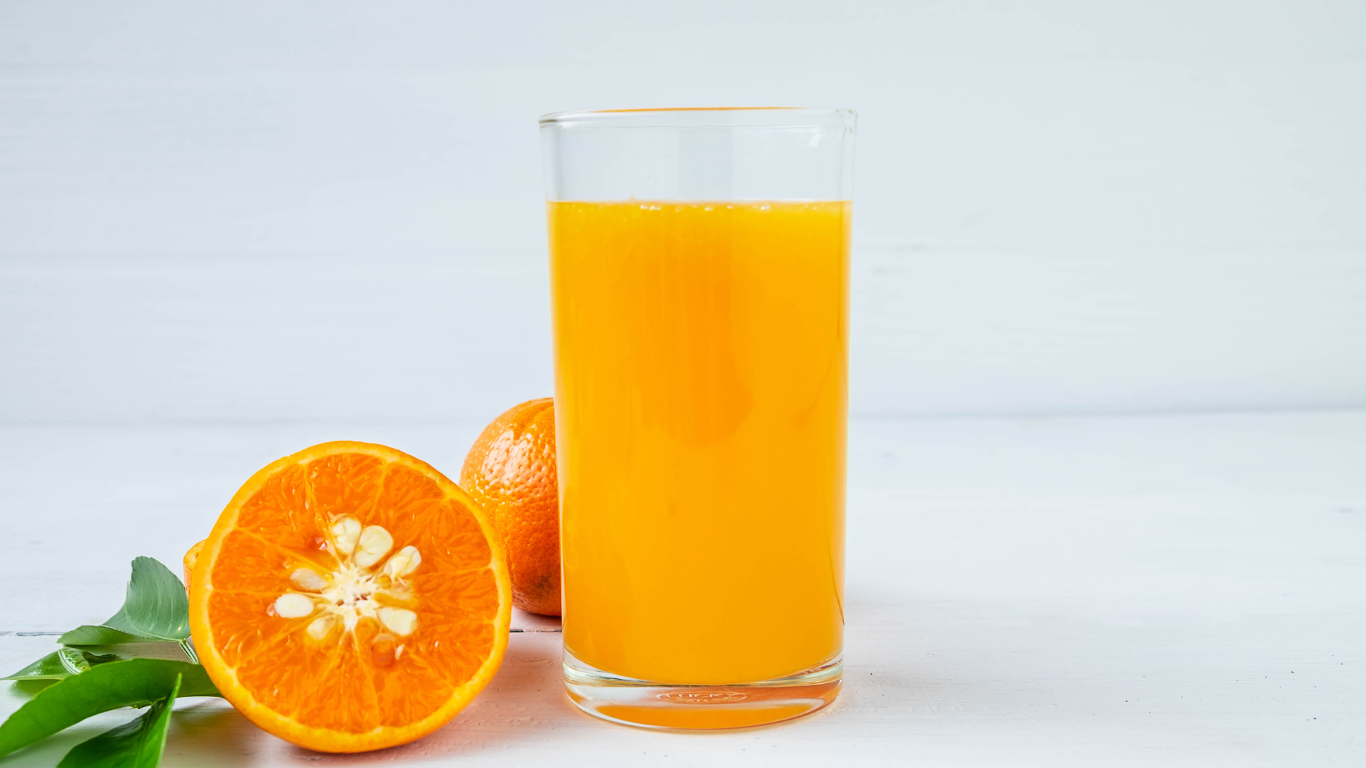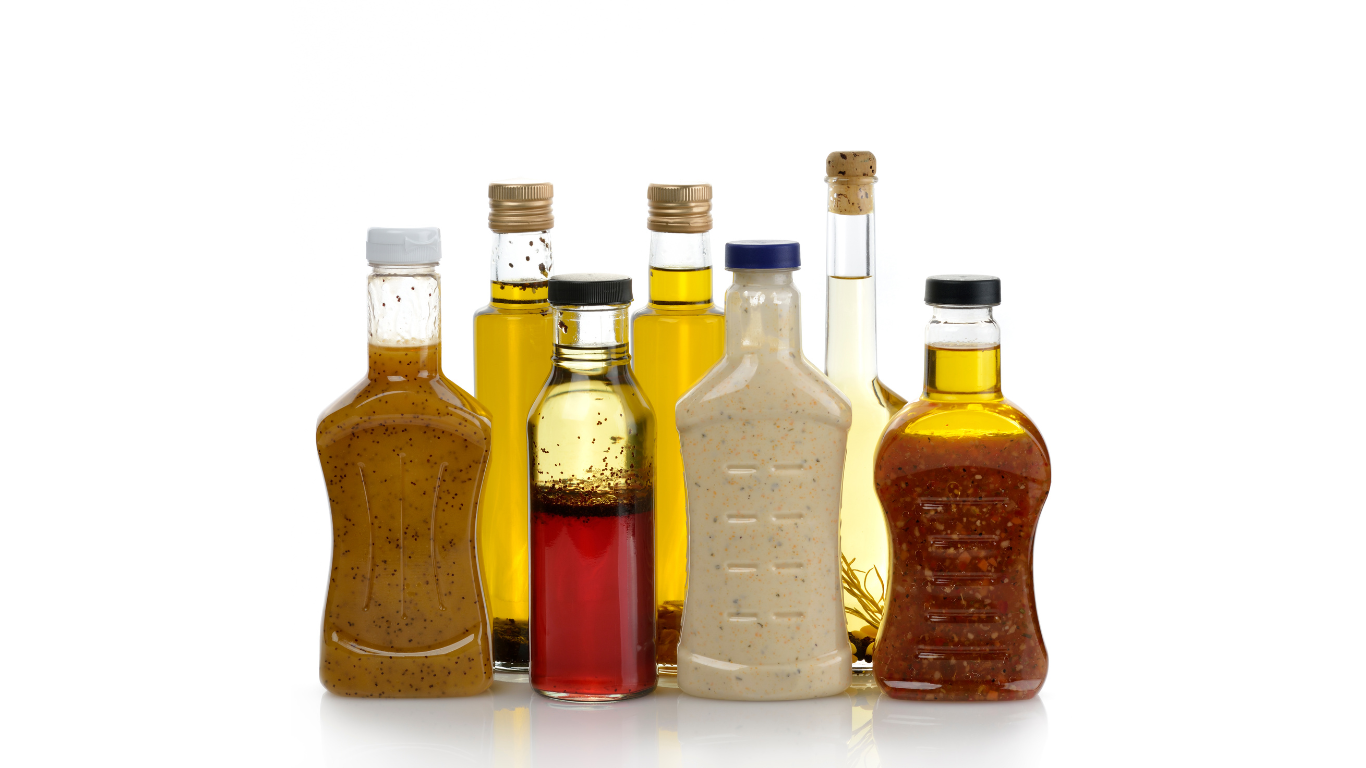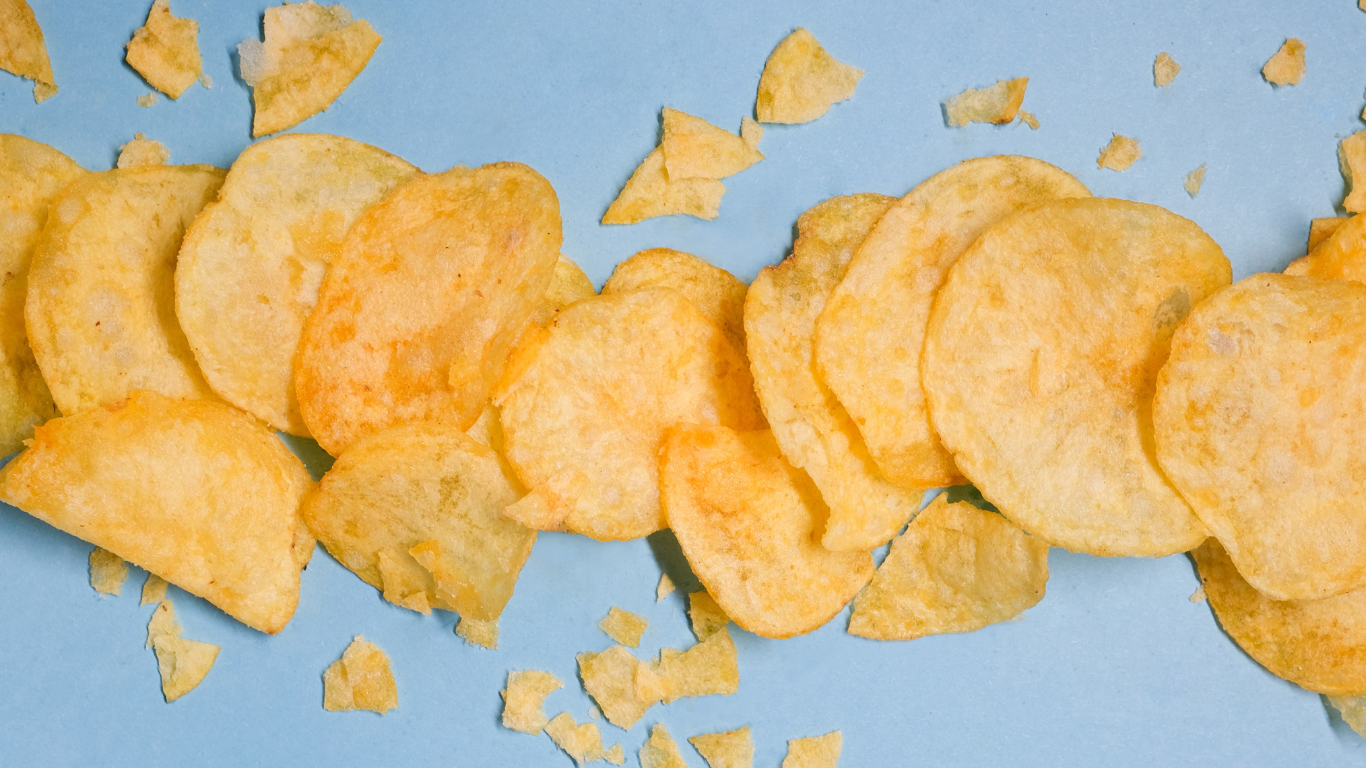Red Flags: Foods To Sidestep in Your Low Carb Journey
Embarking on a low carb diet can be a smart and effective approach to achieving weight loss and maintaining a healthy body weight. By reducing your carb intake, your body shifts into a state of ketosis, where it burns fat for fuel instead of carbohydrates.
However, navigating the world of low carb diets can be challenging as there are numerous foods that can derail your progress. In this blog post, we will discuss the red flags — foods to avoid for a low carb diet. By sidestepping these high carb foods, you can optimize your weight loss journey and reap the many health benefits associated with a low carbohydrate diet.
Understanding High Carb Foods and Diets
To effectively adopt a low carb diet, you should first have a clear understanding of what high carb foods are and how they can impact your overall health and weight loss goals. Let's delve into the definition and description of high carb foods and diets.
What Are High Carb Foods?
High carb foods are those that contain a significant amount of carbohydrates relative to other nutrients. Carbohydrates are one of the three macronutrients found in food, alongside protein and fat. They are the body's primary source of energy and play a crucial role in fueling bodily functions.
High carb foods include:
Grains: Bread, rice, pasta, oats, and cereals.
Starchy vegetables: Potatoes, corn, peas, and winter squash.
Legumes: Beans, lentils, and chickpeas.
Fruits: Bananas, grapes, mangoes, other tropical fruits. Berries are best.
Sweetened beverages: Soda, fruit juices, energy drinks, and sports drinks.
Sugary snacks: Cookies, cakes, pastries, and candy.
Processed foods: Packaged snacks, chips, crackers, and baked goods.
As you can see from the photo above, even though this plate looks rather healthy, these are all high carbohydrate foods with the plate being 50% or more carbohydrates. These high carb foods can cause a rapid rise in blood sugar levels when consumed. They are typically less satiating and can lead to overeating and weight gain. Most Americans are insulin resistance, meaning their body has a hard time managing blood sugar. You can easily calculate this out by dividing your triglycerides by your HDL levels. If you are under 1.5, this is great! If you are over 2, you are insulin resistant and a low carb diet would work well for you.
High Carb Diets
A high carb diet is one that emphasizes the consumption of foods rich in carbohydrates and often includes a higher proportion of carbs relative to fats and proteins. Traditional dietary guidelines, such as the food pyramid, have historically promoted high carb diets as a way to meet daily energy requirements.
However, in recent years, low carb diets have gained popularity due to their potential health benefits, including weight loss and improved blood sugar control. High carb diets, on the other hand, have come under scrutiny for their association with weight gain, insulin resistance, and other health issues.
Foods To Avoid or Consume in Moderation As You Transition to a Low Carb Diet
Now that you know why you shouldn’t adopt a high carb diet, it’s time to know the foods that you should veer away from as you shift to a healthier low carb diet.
Be Cautious of Starchy Vegetables and Sweet Potatoes
While vegetables are generally considered healthy, some varieties are higher in carbs and can hinder your progress on a low carb diet. Starchy vegetables like potatoes, corn, and peas are notorious for their high carb content. Sweet potatoes, although packed with nutrients, are also relatively high in carbohydrates.
These foods can still be enjoyed in moderation, but if you are aiming for a very low carb diet or rapid weight loss, it's best to limit their consumption. Alternatively, opt for low carb vegetables such as leafy greens, bell peppers, and cauliflower. These vegetables provide essential vitamins and minerals while contributing fewer carbs to your daily intake.
Limit High Carb Foods and Grains
One of the main principles of a low carb diet is reducing or eliminating high carb foods and grains. This includes foods like white bread, wheat bread, whole wheat pasta, and breakfast cereals. These refined carbohydrates can quickly spike your blood sugar and hinder your weight loss efforts.
Instead, choose whole grains sparingly, focusing on their lower carb counterparts like almond flour and coconut flour. These alternatives can be used to make low carb versions of your favorite dishes while keeping your carb intake drastically lower.
Furthermore, when selecting grains, opt for whole grains with high fiber content and lower net carbs. Remember to consume them in moderation and balance them with other low carb foods to stay within your daily carb limit.
Avoid Sugary Snacks and Desserts
Sugary snacks and desserts are known for their high content of added sugars and refined carbohydrates. Consuming excess sugar and refined carbs can lead to rapid spikes in blood sugar levels, followed by crashes, leaving you feeling tired and craving more sugary foods. Moreover, the empty calories from these snacks contribute to weight gain and may hinder your progress in achieving your desired weight loss goals.
Thus, avoid items like cookies, cakes, pastries, candy, and sugary ice creams. Instead, satisfy your sweet tooth with low carb alternatives like sugar-free gelatin or dark chocolate with a high cocoa content.
Say No to Other Sugary Foods and Drinks
Sugary foods and drinks altogether contain an excessive amount of carbohydrates and can lead to weight gain and blood sugar control issues. Thus, items like apple juice, sports drinks, and other sugary snacks should be avoided in a low carb lifestyle. Even seemingly healthy fruit juices can pack a punch when it comes to carb content. Opt for water, herbal tea, or unsweetened beverages to stay hydrated and maintain your low carb objectives.
If you have a craving for something sweet, choose naturally low carb options like berries, which are packed with antioxidants and fiber.
Watch Out for Hidden Carbs in Condiments and Dressings
Low fat salad dressings and condiments may seem like healthy choices, but they often contain added sugars and unhealthy ingredients. These hidden carbs can add up quickly and hinder your weight loss progress. Instead, opt for dressings and condiments that are low in carbohydrates and healthy fats. Olive oil and natural fats like avocado can be excellent alternatives to high carb dressings.
Check the labels carefully and choose dressings and condiments with no added sugars or opt for homemade versions using ingredients like olive oil, vinegar, and herbs.
Be Wary of Foods Rich in Seed Oils and Trans Fats
While a low carb diet encourages a higher fat intake, it is essential to choose the right types of fats. Seed oils (sunflower, canola, soy, safflower, etc.) and trans fats found in processed foods can increase your risk of heart disease and other health issues.
Hence, opt for healthy sources of fat like coconut oil, coconut milk, grass-fed meats, regular dairy and fatty fish. These natural fats provide numerous health benefits and support your low carb lifestyle. Moreover, include healthy fats in your meals while balancing them with lean proteins and low carb vegetables.
Processed Meats, Proceed with Caution
Processed meats such as deli meats, sausages, bacon, and hot dogs are popular food choices and delicious, but should be approached with caution in a low carb journey. These meats are often linked to poor health outcomes in studies, though the study subjects are often practicing in other unhealthy lifestyle habits. These products may also have a high sodium content, which can cause issues with some people.
Instead of processed meat, choose unprocessed alternatives like chicken, turkey, beef, or pork and prepare them using healthier cooking methods like grilling, baking, or steaming.
Minimize Consumption of Starchy Foods
Starchy foods like white potatoes, rice, and pasta should be minimized in a low carb diet. These foods are high in digestible carbs, which can cause spikes in blood sugar and hinder weight loss efforts.
Experiment with low carb substitutes to your favorite starchy dishes and explore new recipes that incorporate low carb vegetables and proteins. For instance, consider alternatives like cauliflower rice, zucchini noodles, and spaghetti squash. These low carb substitutes allow you to enjoy your favorite meals while keeping your carb intake in check.
Consume Legumes and Beans in Moderation
Legumes and beans are nutrient-dense foods that provide a good source of fiber, protein, vitamins, and minerals. However, they also contain carbohydrates, making them a point of consideration in a low carb diet.
If you're following a very low carb or keto diet, where your carb intake is significantly restricted to induce ketosis, it's recommended to limit or avoid legumes and beans. However, if you're following a well-balanced low carb diet that allows for a moderate carb intake, legumes and beans can be reintroduced in moderation. The key is to be mindful of portion sizes and incorporate them strategically into your meals.
Limit Your Alcohol Consumption
Alcoholic beverages like beer, sweet cocktails, and sugary mixers are high in carbohydrates and calories. These can hinder your weight loss progress and disrupt your low carb diet. It's important to understand that the body prioritizes metabolizing alcohol before other nutrients, including fat. This means that when alcohol is present in your system, your body temporarily pauses the fat-burning process, potentially slowing down your weight loss efforts.
If you still want to include alcohol in your low carb lifestyle, choose lower carb options like dry wines, spirits, or light beers.
Beware of Refined Carbohydrates and Trans Fats
Refined carbohydrates, such as white bread, white pasta, and processed snacks, should be avoided in a low carb diet. These foods have been stripped of their nutrients and often contain unhealthy additives. Similarly, trans fats found in many processed foods can increase your risk of heart disease and contribute to weight gain. Choose whole, unprocessed foods like meats, vegetables, regular dairy and low sugar fruits like avocado and berries.
Focus on whole foods that are naturally low in carbs and high in nutrients. Prepare meals using fresh ingredients and avoid heavily processed and packaged foods.
Dial Down on Sweetened Yogurts and Dairy Products
weetened yogurts and dairy products may seem like healthy food choices, but they often contain added sugars that can significantly increase carb content. These added sugars can likewise lead to blood sugar spikes, energy crashes, and increased cravings for more sugary foods.
Consuming too much added sugar can also contribute to weight gain, inflammation, and an increased risk of chronic diseases like type 2 diabetes and heart disease.
However, not all yogurt and dairy products are equal in terms of carb content. Unsweetened yogurt and select dairy products, such as heavy cream or full-fat cheese, contain very few carbs and can be included in a low carb diet in moderation.
Tips To Avoid High Carb Foods
Successfully navigating a low carb diet requires mindful choices and strategic planning. Here are some tips to help you avoid high carb foods and stay on track with your low carb journey.
Read Labels
Before purchasing any packaged food, carefully read the labels to check the carb content. Look for hidden sugars, high carb additives, and ingredients that may increase your carb intake. Familiarize yourself with common names for sugar and other high carb ingredients to make informed choices.
Meal Planning
Plan your meals ahead of time to ensure that you have low carb options available. Designate a specific day for meal prepping and batch cooking so you always have healthy meals on hand. By having meals ready to go, you're less likely to reach for high carb convenience foods.
Stock a Low Carb Pantry
Keep your pantry stocked with low carb staples like nuts, seeds, nut flour, coconut flour, almond milk, olive oil, and spices. Having these items readily available will make it easier to whip up low carb meals and snacks without resorting to high carb options.
Choose Whole Foods
Focus on whole, unprocessed foods as the foundation of your low carb diet. Fresh fruits and vegetables, lean proteins, and healthy fats should make up the bulk of your meals. By opting for whole foods, you minimize your exposure to hidden carbs and maximize the nutritional value of your meals.
Plan Restaurant Visits
When dining out, review the menu beforehand and look for low carb options. Choose protein-rich dishes with low carb vegetables as side dishes. Ask for modifications, such as substituting high carb sides with extra veggies or a salad. Avoid bread baskets, pasta dishes, and sugary drinks.
Prepare Snacks in Advance
Have low carb snacks prepared and portioned for those moments when hunger strikes. Snack options could include hard-boiled eggs, cheese cubes, sliced cucumbers with guacamole, or a handful of nuts. Having these healthy snacks readily available will help prevent impulsive high carb snacking.
Seek Support
Join online communities or local groups of individuals following a low carb diet. Sharing experiences, tips, and recipe ideas can provide support and motivation on your journey. Having like-minded individuals to lean on can make it easier to navigate social situations and stay committed to your low carb lifestyle.
Look for Alternatives
Look for low carb substitutes for your favorite high carb foods. For example, swap pasta with zucchini noodles or spaghetti squash, use lettuce wraps instead of bread for sandwiches, and replace rice with cauliflower rice. Explore low carb recipes and experiment with ingredient substitutions to create satisfying meals without the high carb content.
Stay Hydrated
Proper hydration is essential for overall health and can also help curb cravings. Often, feelings of hunger can be mistaken for thirst. Keep a water bottle with you and aim to drink enough water throughout the day. This will not only keep you hydrated but also aid in maintaining a healthy metabolism.
Practice Mindful Eating
Slow down and savor your meals. Pay attention to hunger and fullness cues to avoid overeating. Eating mindfully allows you to better appreciate the flavors and textures of your food, making your meals more satisfying. This can help reduce cravings for high carb foods.
By incorporating these tips into your daily routine, you can develop strategies to avoid high carb foods and make healthier choices that support your low carb lifestyle. Remember, consistency and persistence are key to achieving long-term success on your low carb journey.
Final Thoughts
Embarking on a low carb journey is an excellent choice for those looking to lose weight and improve their overall health. By knowing the foods to avoid for a low carb diet, managing your carb intake drastically, and making mindful food choices, you can achieve your weight loss goals and experience the many benefits associated with a low carbohydrate diet.
To make sure that you stay on track, try out the nutrition services of Thrive Nutrition. Our team of licensed nutritionists can help you avoid high carb foods and keep you motivated to attain your weight and health goals. Visit here to learn more about the low carbohydrate lifestyle and schedule a free consultation.













